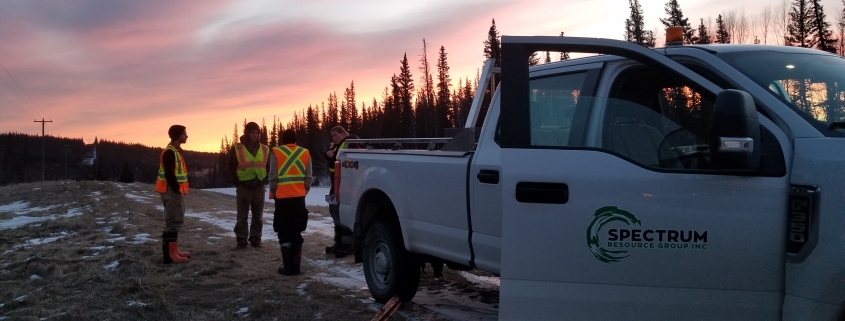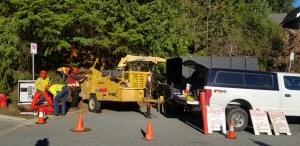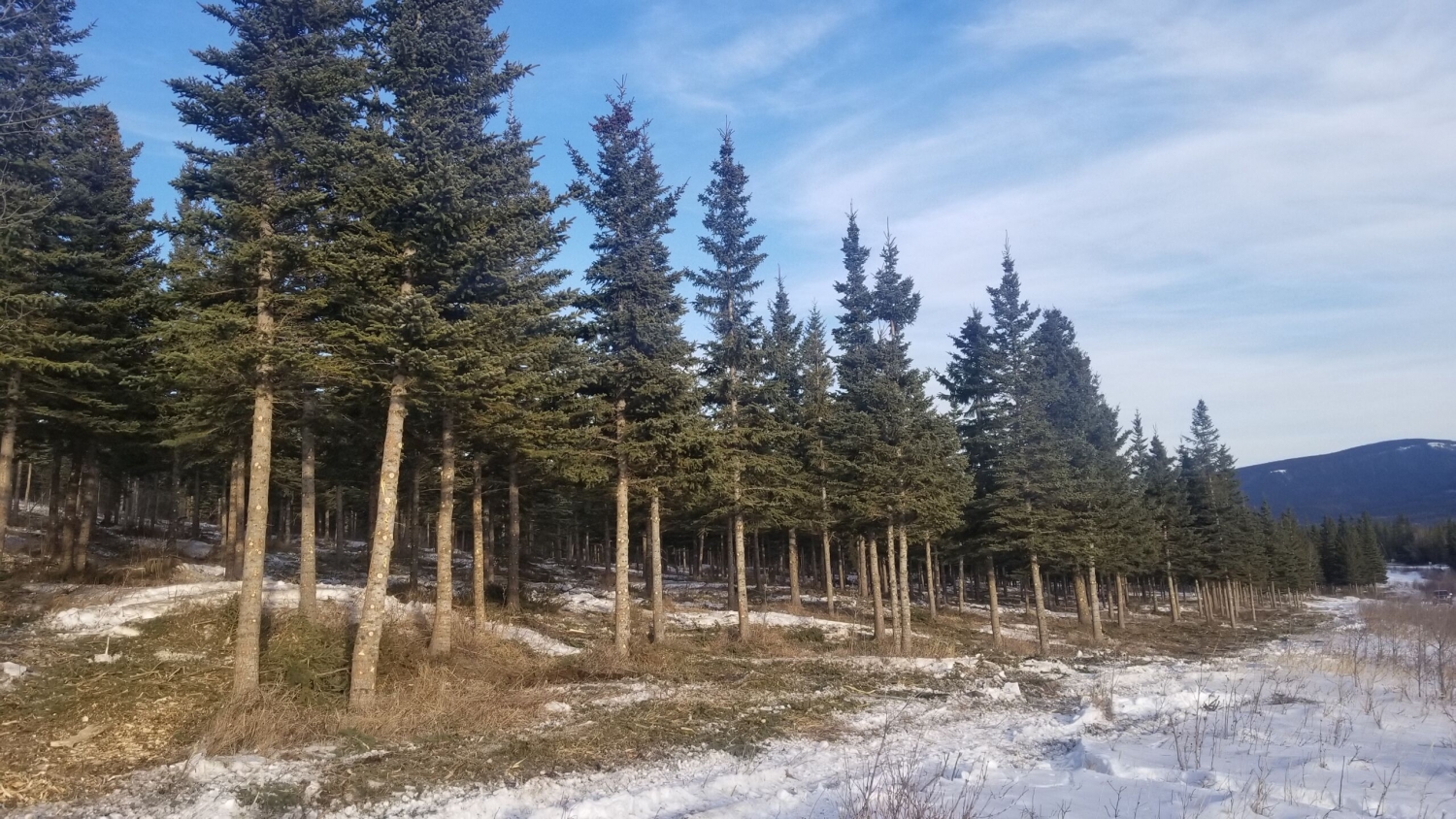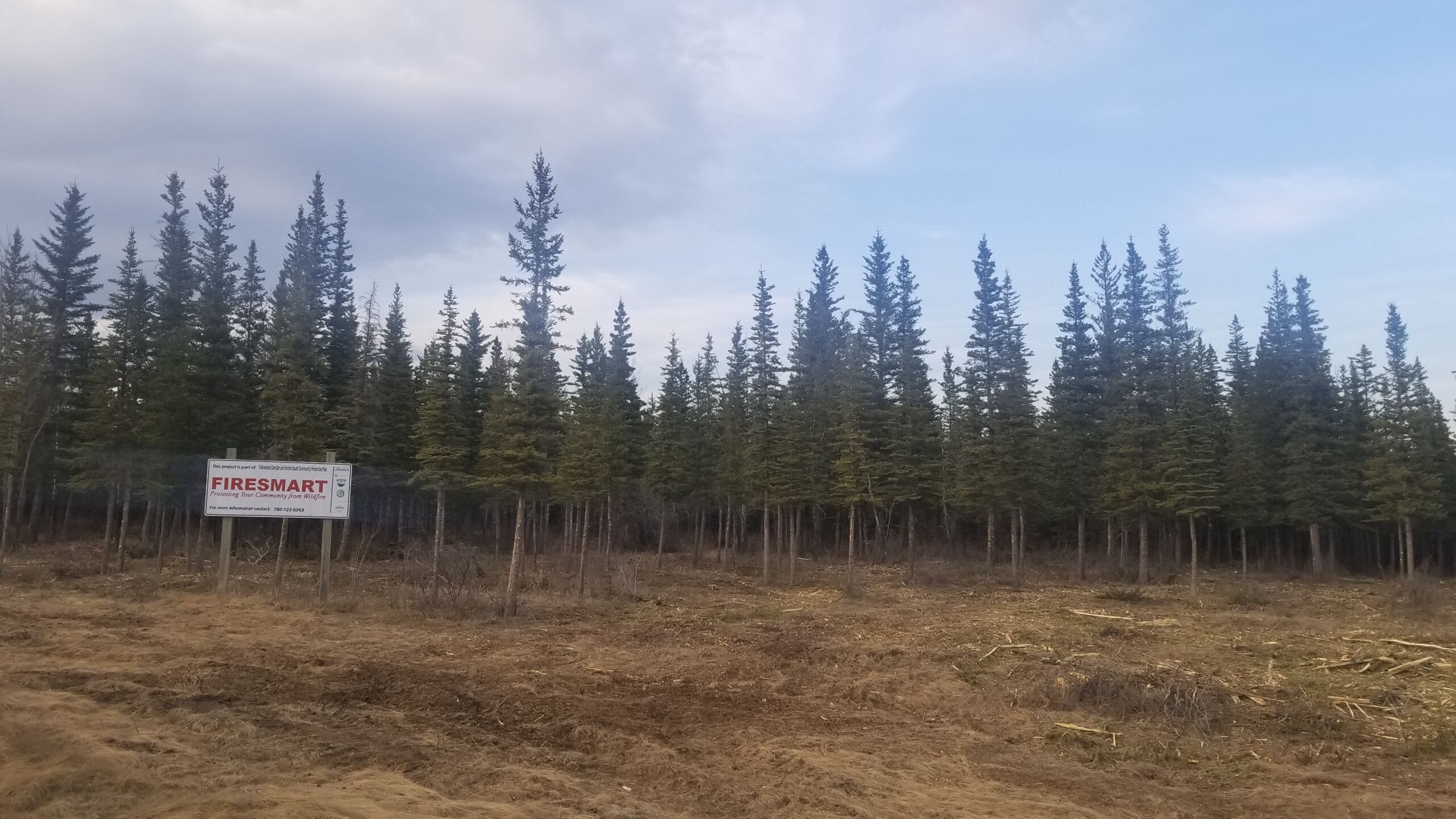Operational Fuel Management: A Growing Business Division in Western Canada
There’s a definite sense of satisfaction you feel when you look behind you and see a finished product. A product you created with your own hands and the combined effort of those on your team. A product that will ultimately contribute to community wildfire protection.

Safety First. An operational fuel management crew in Mackenzie, British Columbia, starts their day with a thorough safety tailgate round table, led by site supervisor Jennifer Davy, before heading into the bush.
Operational fuel management, fire mitigation, wildfire hazard abatement, FireSmart, or whatever you want to call it, is the process by which a pre-identified stand of timber is modified to reduce the risk of wildfire to an adjacent interest. Whether the interest is infrastructure, people’s livelihood or the community and those people that live in it, the objective is to reduce the:
- fuel load within a target stand to diminish the continuity of a wildfire
- intensity of a fire
- potential for a ground fire to ladder and become a crown fire
On paper, the process is simple.
- Remove ladder fuels by pruning low hanging branches
on conifer species. - Clean-up the forest floor by removing surface fuels.
- Reduce the density of trees with either mechanized equipment or by hand to meet inter-tree distance specifications as per the treatment prescription.
- The waste wood, including the prunings, is piled and burned or chipped, often by hand.
- Merchantable trees are skidded to the roadside and hauled away to the mill.

Close quarters. An operational fuel management crew works in a North Vancouver suburb to mitigate the risk of wildfire to adjacent residences.
Operational fuel management has provided another opportunity for Spectrum Resource Group field staff to work year-round. Projects often start as early as September, and continue through May, allowing staff who work on summer projects an opportunity to continue to work through the winter months. Last winter, Spectrum worked on projects around a number of communities throughout Alberta and British Columbia, including 100 Mile House, 150 Mile House, Hinton, Kamloops, Mackenzie, Quesnel and North Vancouver.
As climate change continues to affect the moisture levels in our forests, and forest pests continue to proliferate, extreme wildfire seasons, like the ones we experienced in 2017 and 2018, will likely continue to ensue, necessitating a need to protect our communities.
Spectrum is arguably the provincial leader in operational fuel management in Alberta and British Columbia and expects these programs to grow over the foreseeable future, providing ample opportunities for staff to grow as the company expands its operational footprint.
The work is physically demanding, the conditions cold and wet, but the outcome is a product that is tangible. It is something that you can see and feel and pride yourself on. It’s extremely satisfying to see that your efforts contribute to the protection of our communities and the people who live there.



Finished product. Completed FireSmart fuel breaks that encircle the community of Hinton, Alberta. These projects were completed by Spectrum in the winter of 2019/2020.

